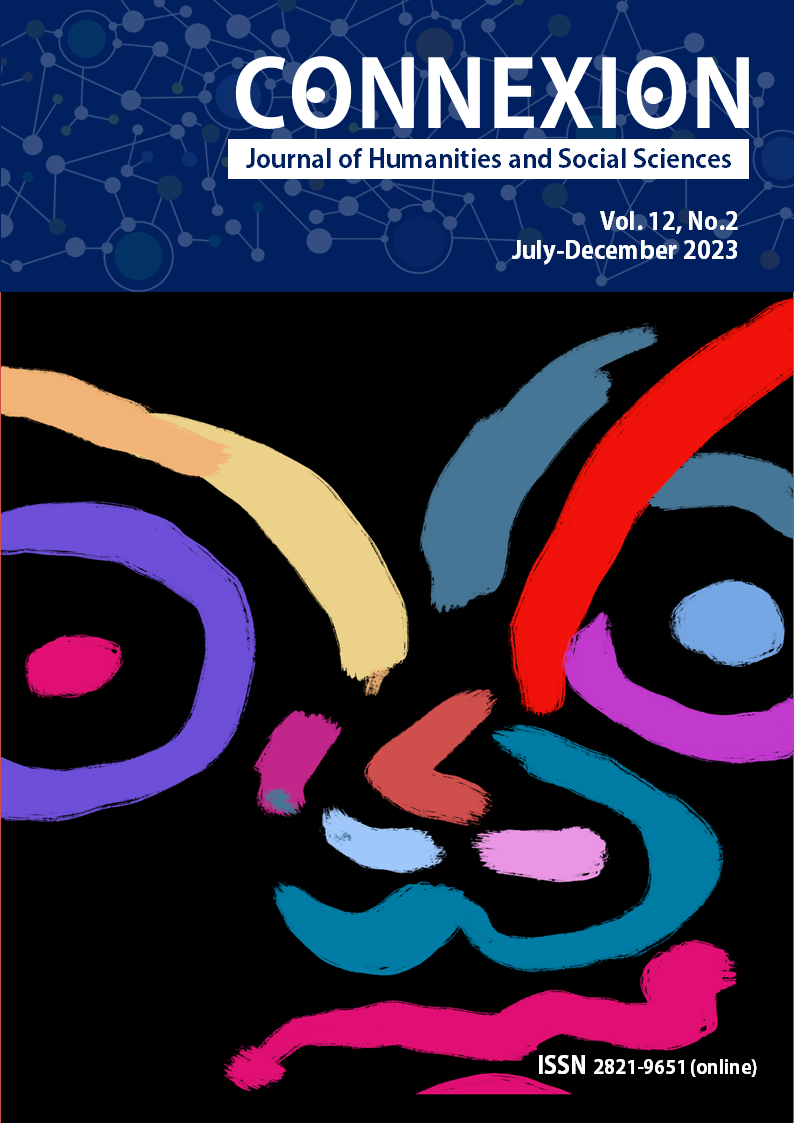Cultural Diplomacy of China towards Thailand through the Confucius Institutes
Main Article Content
Abstract
The objectives of this research were to identify the operations and role of Confucius Institutes in Thailand, and to analyze the impact of cultural diplomacy of China on Thailand through the Confucius Institutes. This study was qualitative research, employing documentary research and in-depth interviews. The results of the research showed that the main aims of the Confucius Institutes in Thailand are to enhance increased understanding of Chinese language and culture, promote educational and culture exchanges, and develop cooperation between Thailand and China in various dimensions. In addition, the Confucius Institutes have expanded its scope of implementation to jointly develop manpower capability in Chinese language and vocational skills for the industrial sector. Since the inception the Confucius Institutes in 2006, China’s use of this soft power in driving cultural diplomacy policy through Chinese language and culture education has clearly benefited Thai society. The crucial impacts were the development of teaching and learning Chinese language in Thailand, opportunity creation for learning Chinese language, and the closer relationship and cooperation among agencies of the two countries. At present, Thailand and China have elevated their existing educational cooperation to further improve the quality of Chinese language and culture instruction.
Article Details

This work is licensed under a Creative Commons Attribution-NonCommercial-NoDerivatives 4.0 International License.
Copyright
Connexion: Journal of Humanities and Social Sciences has an exclusive right to publish the accepted articles in any form. However, the author retains the following rights:
1. The right to the ownership of the article;
2. The right to use all or part of the article in his/her other works;
3. The right to re-produce the article for personal use or for use in the author’s organisation, in which case the author must obtain permission from Connexion: Journal of Humanities and Social Sciences;
4. The right to make copies of all or part of the work for educational use or for the author’s use in classroom teaching; and
5. The right to include the work (both the preprinted and printed versions) in an institutional repository.
References
Brazys, S., & Dukalskis, A. (2019) Why U.S. universities are shutting down China-funded Confucius Institutes, Available: https://www.washingtonpost.com/news/monkey-cage/wp/2019/01/11/u-s-universities-have-shut-down-confucius-institutes-heres-what-you-need-to-know/ [17 February 2021]
Chakraborty, K. (ed.). (2013) Cultural diplomacy dictionary, New York: The Institute for Cultural Diplomacy, Available: https://www.culturaldiplomacy.org/culturaldiplomacynews/content/pdf/Cultural_Diplomacy_Dictionary.pdf [25 July 2021]
Chinese International Education Foundation (CIEF). (2021) Global network (全球网络), Available: www.cief.org.cn/qq [15 January 2021] (in Chinese)
Chinese International Education Foundation (CIEF). (n.d.) About CIEF (简介), Available: www.cief.org.cn/jj [12 January 2021] (in Chinese)
Devawongse Varopakarn Institute of Foreign Affairs. (2013) Dictionary-abbreviation on diplomacy and foreign affairs (คำศัพท์-คำย่อทางการทูตและการต่างประเทศ), 3th edition, Bangkok: Amarin Printing and Publishing. (in Thai)
Dhurakij Pundit University (DPU). (2021) Maritime Silk Road Confucius Institute (สถาบันขงจื่อเส้นทางสายไหมทางทะเล), Available: https://www.dpu.ac.th/msrci/documents.php [6 December 2021] (in Thai)
Fan, W., Jutaviriya, K. & Punndhanamahakarune, D. (2021) Chinese policy on promoting the development of confucius institute to Thailand (นโยบายของจีนในการส่งเสริมการพัฒนาสถาบันขงจื่อสู่ประเทศไทย), Political Science and Public Administration Journal Khon Kaen University, vol. 6, no. 1, pp. 1-30. (in Thai)
Galindo, G. (2019) Brussels university to close Chinese-funded institute after espionage accusations, Available: https://www.brusselstimes.com/belgium/83195/brussels-university-to-close-chinese-funded-institute-after-espionage-accusations-vub-confucius-institute [17 February 2021]
Manussurakul, S. (2020) Confucius institutes the silently spread of China’s influence (สถาบันขงจื่อ ซุ่มเงียบแผ่อิทธิพลจีน?), Available: https://themomentum.co/confucius-institutes/ [6 December 2021] (in Thai)
McClory, J. (2019) The soft power 30: A global ranking of soft power 2019, Available: https://www.softpower30.com/wp-content/uploads/2019/10/The-Soft-Power-30-Report-2019-1.pdf [12 April 2021]
Nguyen, D. T. P. (2006) China’s cultural diplomacy in Southeast Asia from the 1990s to the present: A case study of Thailand and Vietnam (การทูตวัฒนธรรมของจีนในเอเชียตะวันออกเฉียงใต้จากช่วงทศวรรษ 1990 จนถึงปัจจุบัน: กรณีศึกษาประเทศไทยและเวียดนาม), Master’s thesis, Chulalongkorn University. (in Thai)
Nye, J. (2017) Soft Power: The origins and political progress of a concept, Palgrave Commun, vol. 3, Article number: 17008. https://doi.org/10.1057/palcomms.2017.8
Nye, J. S., Jr. (2004) Soft power: The means to success in world politics, New York: Public Affairs.
Qichen, Q. (2011) World situations and China’s foreign policy (สถานการณ์โลกกับการทูตจีน) (trans. A. Fungthamasan), Bangkok: Matichon Public House. (in Thai)
Statista. (2021) Number of Confucius Institutes in Asia as of December 2018, by country, Available: https://www.statista.com/statistics/879176/china-confucius-institutes-in-asian-countries/ [6 December 2021]
Sukkaew, K., & Sodsuk, N. (2013) The policy of China’s soft power toward Thailand and its impact on Sino-Thai Relation (นโยบายอำนาจละมุนของจีนต่อไทยและผลกระทบต่อความสัมพันธ์ไทย-จีน), Journal of Finance, Investment, Marketing and Business Administration, vol. 3, no. 2, pp. 643-644. (in Thai)
The Academy for Cultural Diplomacy. (2021) Historical acts of cultural diplomacy, Available: https://www.culturaldiplomacy.org/academy/index.php?en_historical-acts-of-cd [25 July 2021]
The Council on Foreign Relations. (2018) China’s big bet on soft power, Available: https://www.cfr.org/backgrounder/chinas-big-bet-soft-power [6 December 2021]
Tungkeunkunt, K. (2016) Culture and commerce: China’s soft power in Thailand, International Journal of China Studies, vol. 7, no. 2, pp. 151-173.
Xi, C. (2020) New NGO to operate China’s Confucius Institutes, ‘disperse misinterpretation’, Available: https://www.globaltimes.cn/content/1193584.shtml [1 October 2023]
Zamorano, M. M. (2016) Reframing cultural diplomacy: The instrumentalization of culture under the soft power theory, Culture Unbound, vol. 8, no. 2, pp. 165-186. https://doi.org/10.3384/cu.2000.1525.1608165


